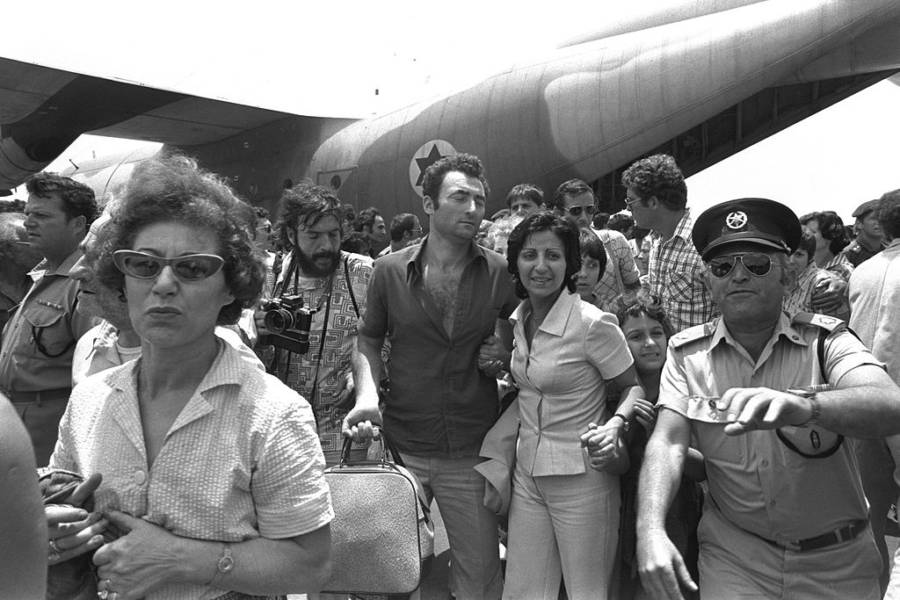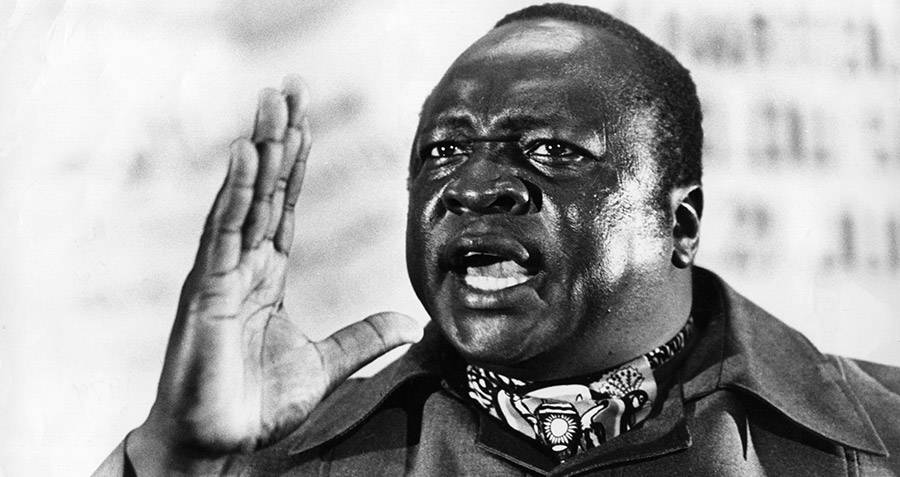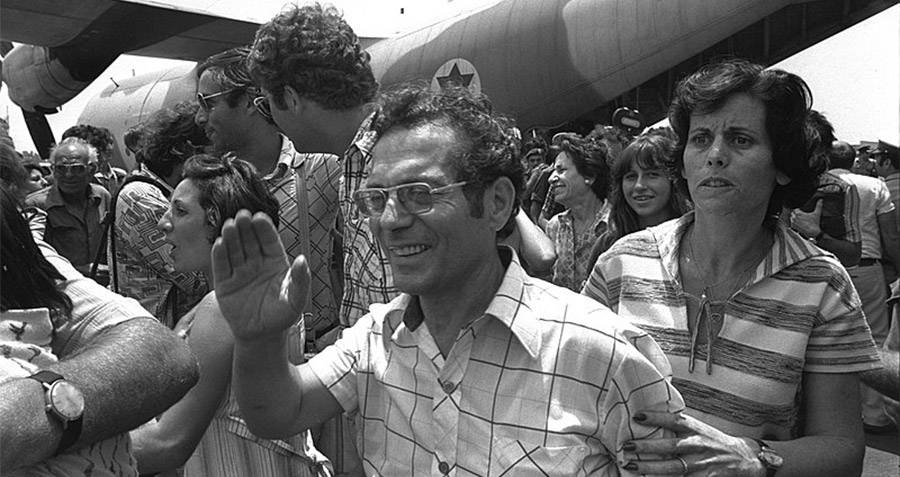After a hijacking of an airplane turned into a week-long hostage situation in Uganda, Israel launched one of the most daring operations in military history.

Wikimedia CommonsA police officer clears the way for rescued Operation Entebbe hostages returning from Entebbe Airport in 1976.
The Entebbe raid was a bold military operation that cast Israel into the international spotlight and signaled a high point in Israeli history, as it earned admiration on a global scale.
The epic saga began on June 27, 1976. A routine commercial flight on Air France made its way from Tel Aviv to Paris. The plane contained 248 passengers and 12 crew onboard and paused for a planned break in Athens.
While the plane was at rest, a pair of Germans by the names of Wilfried Böse and Brigitte Kuhlmann walked onto the stationed plane. Böse and Kuhlman were part of a German organization known as Revolutionary Cells, who were working with the Popular Front for the Liberation of Palestine.
Once on board, Böse quickly rushed the cockpit with a revolver and a hand grenade. The hijackers then announced their demand on a microphone: $5 million dollars and the release of 53 prisoners held in five different countries. Böse then ordered the plane to be rerouted to Benghazi, Libya.
Eventually, the plane touched down onto the tarmac and a small number of passengers were released before Böse ordered the plane to take off once more. The journey continued seemingly endlessly. But eventually, the remaining passengers were escorted off the plane and into the old terminal building of Entebbe airport in Uganda.
The hijackers then divided Israelis from non-Israelis, gathering the former in the transit hall, the latter elsewhere. The non-Israeli group were set free and flown back to Paris. Ninety-four hostages and a dozen crew members remained.
Back in Israel, military officers were attempting to construct what they knew, which was almost nothing. The officer in charge of planning for military operations was a former elite commando and future Prime Minister, Ehud Barak.

Getty ImagesIdi Amin
Barak was then informed that the President of Uganda, Idi Amin, and his regime were colluding with the hijackers. Yitzhak Rabin, the Prime Minister of Israel, then signed off on a perilous military plan called Operation Entebbe.
They were provided vital intel that Amin was spending the weekend on a diplomatic trip out of Uganda. If Israel could somehow fly four Hercules transporters to Uganda, one could land and release a number of vehicles that were altered to appear similar to Amin’s vehicles.
By Saturday night, the team was briefed and prepared. They were led by Yonatan Netanyahu, brother of future Israeli Prime Minister Benjamin Netanyahu. The four Hercules would be accompanied by two Boeing 707 jets with one to serve as a command post and the other as a field hospital.

Getty ImagesCommander Yonatan Netanyahu
On July 4, a week after the plane was hijacked, Israeli forces landed in Entebbe during the dead of night. The runway was obscured in darkness; the planes would have to land in complete blindness. The first plane landed, and one of the vehicles was expelled. It headed straight for the terminal building, disguised with Ugandan flags and all 35 commandos in Ugandan uniforms to confuse the enemies.
But then a Ugandan soldier appeared, raising his rifle. Israel soldiers fired at the soldier with their silenced pistols and the man crumpled. He then sat back up, motivating another Israeli soldier to fire with an unsilenced weapon. This instigated mass chaos as shooting ensued between the two sides.
Once the smoke cleared, every single one of the hijackers and 20 Ugandan soldiers were dead. The hostages were guided into the waiting aircraft. On board were 102 hostages and crew; four were either dead or missing. Among them was the commander of Operation Entebbe, Yonatan Netanyahu. He had been shot within minutes of the first aircraft landing.

Wikimedia CommonsA joyous wave of the hand and a tense searching look by homecoming Air France hostages who were rescued from Entebbe Airport.
Operation Entebbe was considered a stunning success and would be later taught and studied by armies around the globe. It launched Benjamin Netanyahu—the brother of head commander, Yonatan Netanyahu—onto a prestigious political path that made him Prime Minister of Israel. Operation Entebbe would later be renamed Operation Yonatan in honor of the head commander who was killed in action.
A movie based on the rescue mission, titled Entebbe is set to be released in March of 2018.
Enjoy reading the real story of Operation Entebbe? Operation Gunnerside, the mission that may have saved us all from Nazi rule. Then learn about Operation Husky, in which Lucky Luciano aided the U.S. during World War II.





